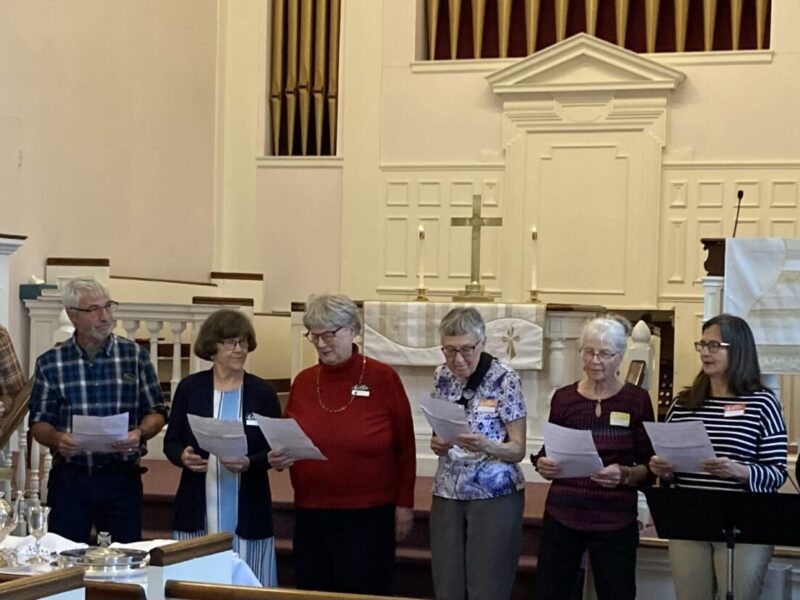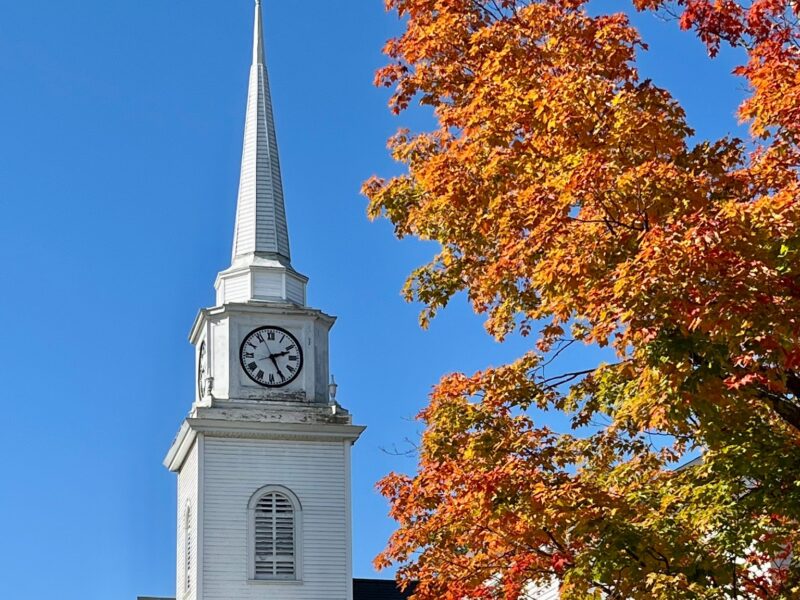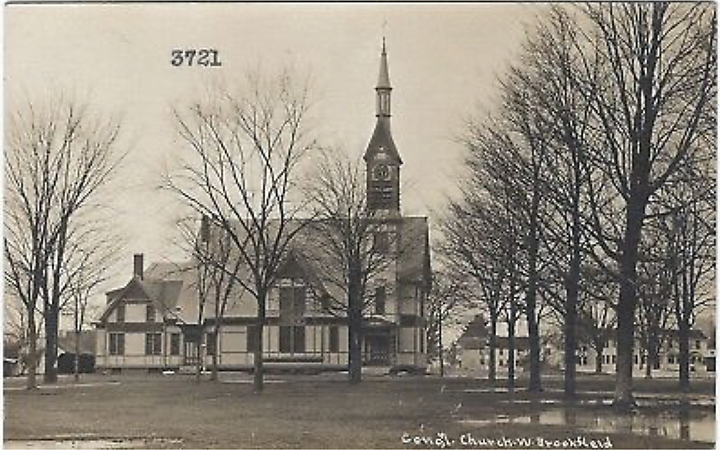The By-Laws of First Congregational Church of West Brookfield and First Parish in West Brookfield (our official titles) guide our life together. (latest revision was May 7, 2017)
Our Covenant states: We are united in striving to know the will of God as taught in the Holy Scriptures and in our purpose to walk in the ways of the Lord, made known or to be made known to us. We hold it to be the mission of the Church of Christ to proclaim the gospel to all humankind by exalting the worship of the one true God and laboring for the progress of knowledge and by the promotion of justice and of the reign of peace and by the realization of human kinship, depending, as did our ancestors, upon the continued guidance of the Holy Spirit to lead us into all truth. We look with faith for the triumphs of righteousness and the life everlasting.
Our Officers: Moderator, Clerk, Parish Board, Treasurer, Assistant Treasurer, Collector, Auditor
Our Boards: Deacons, Investment, Nominating, Parish, Pastor/Parish Relations, Religious Education
Our Committees: History, Memorial, Missions, Music, Pastoral Search, Stewardship
Other Groups: Church Council, Sharing Cupboard Food Pantry, UCC Delegates
Minister: called by a 90% affirmative vote of the members of the Church/First Parish.
The duties and responsibilities are outlined in the By-Laws for the officers, boards and committees and groups in our church.. If you are needing to contact a volunteer serving our church in one of these areas of service, please call our church office. If you are interested in church membership, please speak to the Minister.
We maintain full communion with other mainline Protestant denominations. We place high emphasis on participation in worldwide interfaith and ecumenical efforts. As a UCC member church, we are a member of the National Council of Churches and the World Council of Churches.
In our denomination, the United Church of Christ, the local church (also often called the congregation) is the basic unit, the foundation and beginning point of life together. Local churches have the freedom to govern themselves, establishing their own internal organizational structures and theological positions. Thus, local church governance varies widely throughout our denomination. Some congregations, mainly of Congregational or Christian Connection origin, have numerous relatively independent “boards” that oversee different aspects of church life, with annual or more frequent meetings. Other churches, mainly of Evangelical and Reformed descent, have one central “church council” or “consistory” that handles most or all affairs in a manner somewhat akin to a Presbyterian session, while still holding an annual congregational meeting,
We celebrate being UCC and being part of a wide, diverse family of faith. Our hopes are that we will be a church united and uniting and be among those answering Jesus’ prayer in John 17:21 “that they may all be one.”



